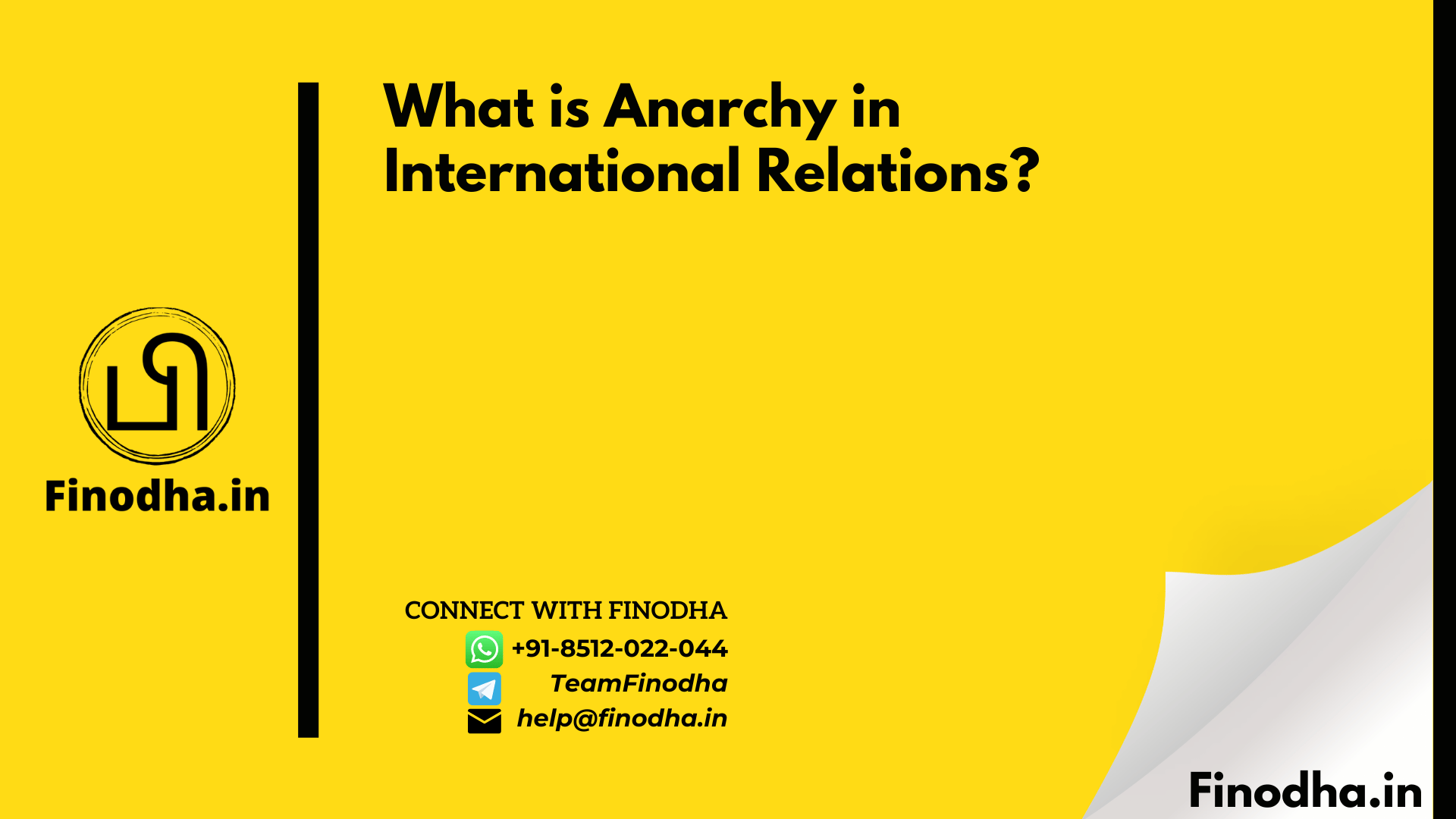Important Keywords: international relations, self-help, power-maximizing behaviour, conflict, war, realism.
Table of Contents
Introduction of International Relations
Anarchy refers to the absence of a centralized governing authority, such as a world government. In international relation, it means there is no single authority or organization that can enforce laws or make decisions on behalf of all states. This article will explore the meaning of anarchy, its effects, and how it shapes international relations.
What is Anarchy?
Anarchy is a situation where there is no centralized authority or government to regulate the behaviour of states. This means that states are free to act in their self-interest without any external oversight. In other words, each state is responsible for its own security and must rely on its own resources to protect itself.
Effects of Anarchy Anarchy in international relations can lead to self-help and power-maximizing behaviours by states. This is because there are no rules or authorities to enforce international laws or settle disputes. The result can be a system of constant competition and conflict. In the absence of international institutions and enforceable laws, powerful states may resort to military force to pursue their interests.
How Anarchy Shapes International Relations Anarchy is a fundamental assumption of realism, which is a school of thought in international relations. Realists argue that international law has limited power to constrain states because there is no effective enforcement mechanism. Therefore, self-help and power-maximizing behaviour are natural consequences of anarchy. As a result, conflict and war are seen as inevitable in the absence of a higher authority to regulate behaviour.
Key Takeaways
- Anarchy is the absence of a centralized governing authority.
- Anarchy leads to self-help and power-maximizing behaviours by states.
- Realists argue that international law has limited power to constrain states because there is no effective enforcement mechanism.
- Conflict and war are seen as inevitable in the absence of a higher authority to regulate behaviour.
Conclusion
Anarchy is a key concept in international relations that has significant implications for how states interact with each other. The absence of a centralized governing authority can lead to self-help and power-maximizing behaviours, which can lead to conflict and war. International institutions and enforceable laws may help to mitigate the negative effects of anarchy, but they are not a panacea. The challenges of anarchy will continue to shape international relations for the foreseeable future.
Official Income Tax Return filing website: https://www.incometax.gov.in/iec/foportal/
Official GST common portal website: https://www.gst.gov.in/





0 Comments